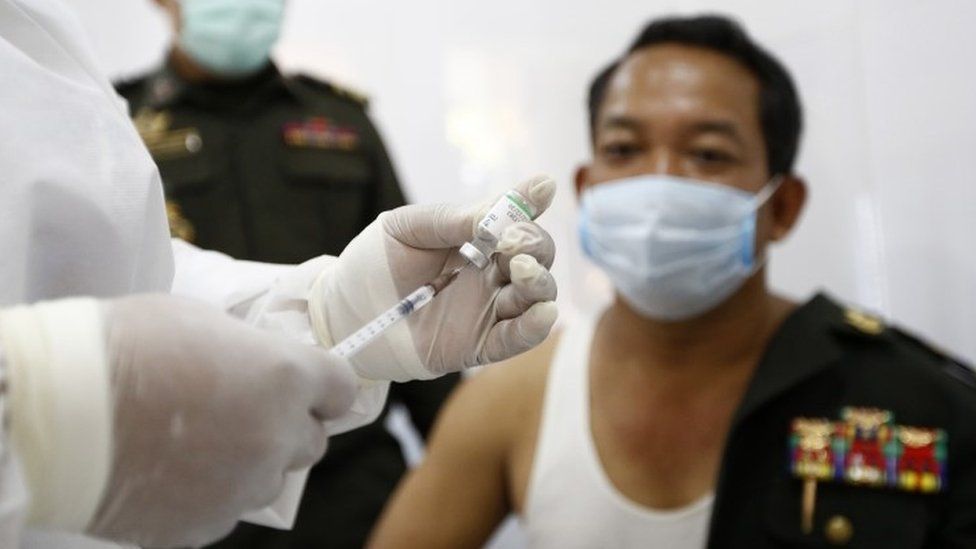Covid-19 pandemic: Warning vaccine roll-out risks prolonging crisis
 image copyrightEPA
image copyrightEPAThe Covid-19 pandemic is unlikely to end unless poorer countries can access vaccines, scientists writing in medical journal the Lancet have warned.
Unprecedented numbers of doses are needed, the article says, but poorer countries lack funds and richer countries have snapped up supplies.
The experts want to see production ramped up and doses priced affordably.
It is the latest warning that so-called "vaccine nationalism" is putting lives at risk.
At last year's UN General Assembly, Secretary-General António Guterres called the practice - when countries sign deals to inoculate their own populations ahead of others - "unfair" and "self-defeating".
"None of us is safe until all of us are safe," he said.
As well as prolonging the crisis, a lack of availability of vaccines raises the risk of further mutations emerging, according to the Lancet article.
"Unless vaccines are distributed more equitably, it could be years before the coronavirus is brought under control at a global level," said lead author Olivier Wouters from the London School of Economics.
Rich countries snap up 70% of doses
Several vaccines have been developed in less than a year, something the Lancet article calls an "extraordinary achievement".
But prices of individual doses vary wildly, with the cheapest costing about $5, the most expensive more than $60. Some can be kept at room temperature, others need special equipment to keep them at low temperature. Deployment is also a challenge - the paper notes that some World Health Organisation members have never carried out a vaccination programme in adults.
And with richer countries buying the bulk of doses - the report estimates these countries have 70% of doses available - the experts warn of a shortfall in poorer and mid-income countries for years to come.
"The world now needs more doses of Covid-19 vaccines than it has done for any other vaccine in history to inoculate enough people for global vaccine immunity," it says.
As more vaccines are approved, the authors suggest deploying them based on local needs - for instance, single-dose vaccines may be better for poorer countries that lack the cold-supply chains or registries needed for vaccines requiring two doses.




No comments